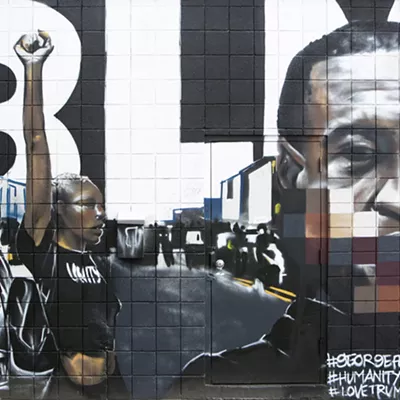
Last Monday, the U.S. Supreme Court decided it wouldn't hear a case from a Washington marriage and family counselor, Brian Tingley, who wishes to practice conversion therapy — mental health counseling that attempts to change someone's gender identity or sexual orientation — even though the state doesn't allow it. Tingley claims that the state's ban limits his conversations with clients and violates the First Amendment.
Washington's ban on conversion therapy prevents licensed health care providers from performing conversion therapy on patients younger than 18. When passing the ban in 2018, the Legislature declared that Washington has a responsibility to protect LGBTQ+ youth from the physical and psychological harms caused by conversion therapy.
Violating the ban can result in up to a $5,000 fine, possible suspension from practice or even the revocation of a counselor's license.
A Seattle-area federal court first ruled against the Tacoma-based counselor in August 2021, upholding the state's ban. Later, the Ninth Circuit U.S. Court of Appeals upheld the law in their Sept. 6, 2022 ruling, deciding that it prohibited certain professional conduct, not speech. The court again affirmed its decision when it denied a review four months later in January 2023.
By declining to hear the case last week, the Supreme Court upheld the Ninth Circuit's opinion, leaving the law in place — for now.
Odyssey Youth Movement Executive Director Ian Sullivan is cautiously optimistic about this decision upholding Washington's ban against conversion therapy.
"We're in full support of this law and similar ones across the country, so we're very excited to see this decision," he says.
But Sullivan worries that people who are against protections for LGBTQ+ youth will try to circumvent the laws that are in place. For example, in this case Tingley was not arguing the validity of conversion therapy, just that a ban on it violates his own freedom of speech and religion.
"Groups who hope to tear down these rights are looking for any way to do that," Sullivan says. "And they're going to keep trying."
Three of the nine Supreme Court justices — Clarence Thomas, Samuel Alito and Brett Kavanaugh — said the court should have heard the case. Thomas' dissent notes that similar challenges may come before the court again, because the Ninth Circuit ruling conflicts with an Eleventh Circuit ruling that found a nearly identical ban to be an illegal infringement of free speech.
"There is a fierce public debate over how best to help minors with gender dysphoria," Thomas writes in his dissent. "Washington silenced one side of this debate by enacting [this law]."
"Although the court declines to take this particular case, I have no doubt that the issue it presents will come before the court again. When it does, the court should do what it should have done here: grant certiorari to consider what the First Amendment requires," he concludes.
Alito's dissent echoes Thomas', adding, "It is beyond dispute that these laws restrict speech."
Even with a ban on the books in Washington and 20 other states, Sullivan says that this type of therapy is still happening throughout our communities in small ways. Part of that is an illusion of choice for many minors, he says.
"The way our culture is set up, it's easy to keep young people from having access to all of their options," he explains. "If you don't have access to all your options, or just don't know about them, that's not really a choice."
That's why a lot of Odyssey's work centers around connecting local youth with the resources that they may not know exist. This may include help finding gender-affirming care or crisis lines, or providing resources for housing and food security.
"Our referrals are not to push folks through certain hoops, but to make sure they have the full picture of all that's available to them," Sullivan says.

























